Speaker Bios
European Democracy Conference 2024
The next international conference will take place on July 2nd 2024 on the topic "The EU at a Crossroads: Perspectives on Europe’s Future after the Elections."
➤ Conference Programme 2024
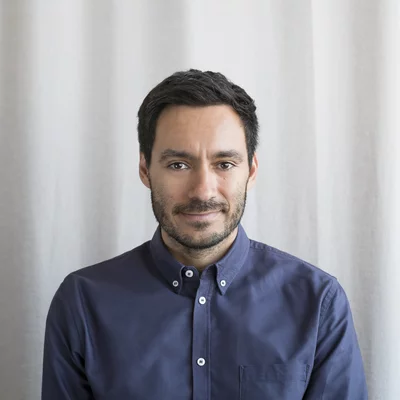
Tarik Abou-Chadi is Associate Professor of European Union and Comparative European Politics at the University of Oxford and Professorial Fellow at Nuffield College. He is currently also an Einstein Visting Fellow at Humboldt University Berlin. His research focuses on the transformation of West European party politics.
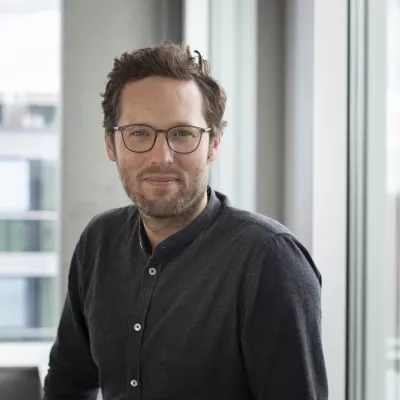
Jan Philipp Albrecht serves as Co-President of the Berlin-based Heinrich Böll Foundation since June 2022. Before, he was Minister for Energy Transition, Agriculture, Environment, Nature and Digitalisation of the State of Schleswig-Holstein in the Günther cabinet, since 1 September 2018.
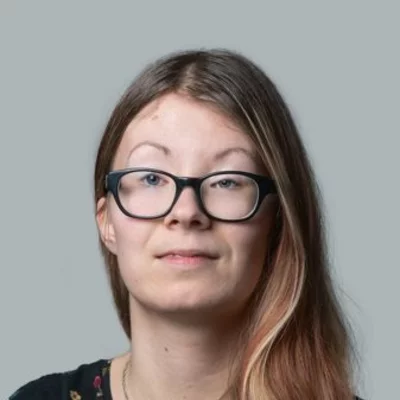
Eliška Beranová is a lawyer who has been dedicated to community energy and the transformation of the Czech energy sector towards clean, low-emission energy sources. She has been leading the legislative group of the Union of Community Energy, founded by the expert group Frank Bold in cooperation with Friends of the Earth Czech Republic. She was involved in the preparation of the amendment to the Energy Act, known as the Lex RES II, which became a first step for democratisation of the energy sector in Czechia.
Annika Brockschmidt studied History, German Studies, and War and Conflict Studies in Heidelberg, Durham, and Potsdam. She is a freelance journalist and author, has worked for the ZDF Hauptstadtstudio, and produces the podcasts "Kreuz und Flagge" and "Feminist Shelf Control." She is a Senior Correspondent for Religion Dispatches and writes for publications such as Tagesspiegel, Zeit Online, Frankfurter Rundschau, Republik, and der Freitag. Her book "Amerikas Gotteskrieger über die Macht der Religiösen Rechten in den USA" was a bestseller in 2021.

Andrea Calori, PhD, is an expert in territorial policies, local development and sustainable food systems, since the early ‘90s he has been working with local, national and international institutions (OECD, EU Commission, Council of Europe, FAO, UNDP, etc.). From 2000 to 2010 Contract Professor at Politecnico di Milano in regional planning and local development. In 2002 co-founder of RES (Rete italiana Economie Solidali), then president of Urgenci, world coalition of networks of Community Supported Agriculture (2010-2015) and activist in the Civil Society Mechanism within the FAO World Committee on Food Security. President of EStà, an independent and non-profit research centre that works on a systemic approach to sustainability and, with EStà, scientific responsible of methodologies and the researches supporting the Food Policy of Milan, the MUFPP (Milan Urban Food Policy Pact) and other researches and activities on local food policies in EU and international level. Calori A., Food and the Cities. Food Policies for Sustainable Cities, 2015.
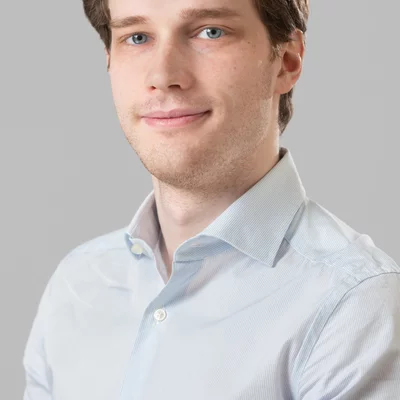
Marco Cappelluti is a PhD candidate in Political Science at University College London. His primary research interests are at the intersection of political economy, political behaviour and comparative politics. His research focuses on the economic determinants of far-right support in the European Union. Specifically, it explores how different sources of economic insecurity affect individual-level facets of support for far-right parties. Marco is also working on projects on the electoral consequences of economic and fiscal reforms in post-financial crisis EU, and on the effects of shocks to traditional morality on party rhetoric in the US. Prior to joining UCL, Marco completed a BSc in Economic and Social Sciences and a MSc in Politics and Policy Analysis from Bocconi University. He also spent time visiting the Hertie School in Berlin and interning at the Laboratory for Effective Anti-Poverty Policies at Bocconi University.
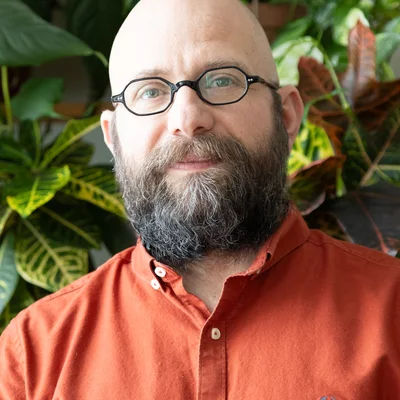
Ákos Éger is executive President of the National Society of Conservationists - Friends of the Earth Hungary (MTVSZ) in Budapest.
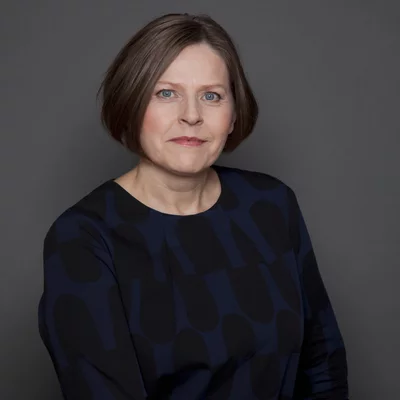
Heidi Hautala is Vice-President of the European Parliament, Member of the European Parliament in the Greens/EFA group. She did not run any more in the 2024 European elections. MEP Hautala has served on the Committee on International Trade and the Subcommittee on Human Rights. She is best known for her contribution to the Corporate Sustainability Due Diligence Directive. In 2017, she established a Working Group on Responsible Business Conduct in the European Parliament. In Finland, Hautala served as a Member of Parliament from 1991 to 1995 and from 2003 to 2009. From 2011 to 2013, she was the Minister for International Development and State Ownership Steering. She holds a Master's degree in Agriculture and Forestry.
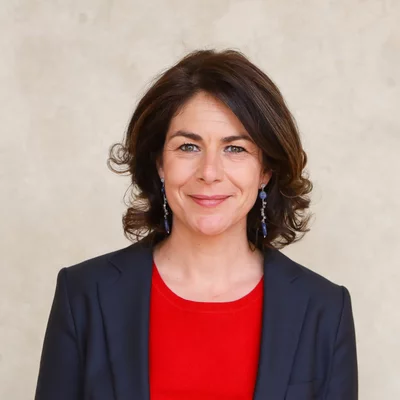
Costanza Hermanin is an Assistant Professor at the Robert Schuman Centre for Advanced Studies (Global Governance Programme) and a Visiting Professor at the College of Europe-Bruges and SciencesPo Paris. Her academic and teaching work focuses on the politics and decision-making of the European Union, with a special focus on inter-institutional relations, and policies in the field of justice and home affairs, non-discrimination and foreign policy. She has presented her work several times at the European Parliament and in other international organizations, and she is also a frequent media contributor.
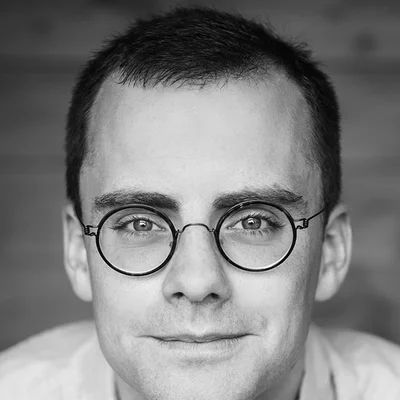
Max Krahé is a political economist and theorist. His research focuses on the history of ideas, the division of labour and the relationship between democracy and capitalism. Max is a co-founder and the research director of Dezernat Zukunft.
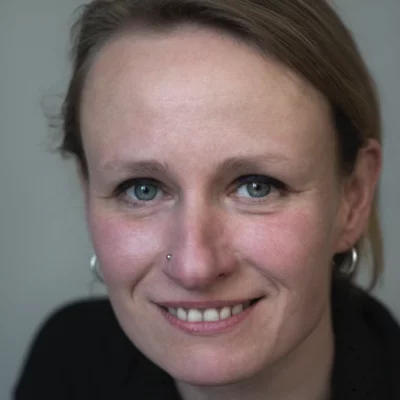
Anna Krenz, born in 1976 in Poznań, Poland, the artist, architect, author and activist Anna Krenz has lived in Berlin since 2003. She graduated from the Faculty of Architecture at the Poznan University of Technology and completed her Master’s degree in Energy, Environment & Sustainable Design at the Architectural Association in London. Since 2001 she has been working with the Nordic Folkecenter for Renewable Energy (Denmark) on sustainable development projects. Anna Krenz is part of the women’s project studio Sinus_3, which combines architecture, ecology, visual arts and public space design. From 2003 to 2012, she co-directed the ZERO Gallery in Berlin, which hosted more than 100 exhibitions, concerts and happenings with artists from Poland, Germany and around the world. She is the founder of the collective Dziewuchy Berlin, initiator and member of the International Council of Polish Women+ and the association Ambasada Polek e.V.
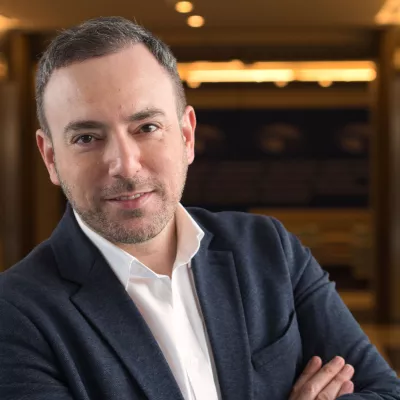
Sergey Lagodinsky is a Member of the European Parliament, Group of the Greens/European Free Alliance. Until June 2019 he was the Head of European Union and North America Division of the Heinrich-Böll-Stiftung. His specialist expertise lies in transatlantic relations, international and constitutional law as well as law and politics of diversity and integration.
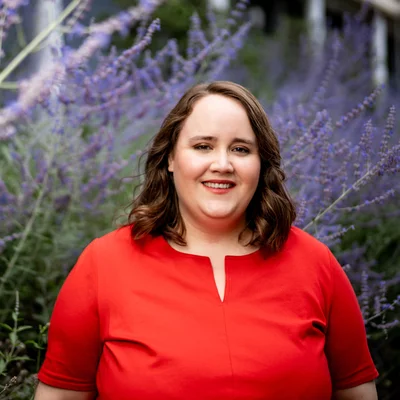
Ricarda Lang is the federal chair of the German Green Party Bündnis 90/Die Grünen. She is a member of the German parliament since 2021 and member of the committee on family affairs as well as a deputy member of the committee on labor and social affairs. Between 2019 and 2022, Lang served as the deputy chair of the party. Furthermore, she was the spokesperson for the Green Youth, the youth organisation of the Green Party. Her focus lies on women’s policy, health policy, social security and a diverse society.
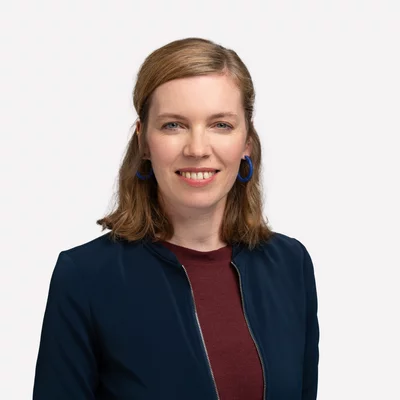
Katrin Lange holds a diploma in political science from the University of Leipzig.As head of the Europe Department of theInstitute for Social Work and Social Education, she coordinates theObservatory for Sociopolitical Developments in Europe (Observatory), based in Berlin. Previously, she worked at the Project Gender Care Gap (2018-2020), for the Agency for the Second Gender Equality Report of the German Federal Government (2015-2018), for the German Woman Lawyers Association (2012-2016), and the European Movement Germany (2010-2011). She analyses socio-political developments in Germany and other EU Member States as well as at the European level with a strong focus on gender equality. Her fields of expertise include European Social Policy, gender and LGBTIQ* equality policy and policy for children and families.

Martyna Berenika Linartas holds a doctorate in political science. In addition to her master's degree in political science, Linartas completed her training as a press officer at the federal office of Bündnis 90/Die Grünen during the 2017 parliamentary election campaign. From 2018 to 2021, Linartas worked part-time in Annalena Baerbock's parliamentary office, from 2019 to 2023 she completed her doctorate at the Free University Berlin in the Cluster of Excellence Contestations of the Liberal Script (SCRIPTS). In 2022, she founded the knowledge platform ungleichheit.info, which she has managed ever since, is member of the Green Academy, and is part of the Inequality Steering Group of the think tank Forum New Economy. Linartas is currently working on her habilitation thesis on “The Deserving Rich” and the (re)production of wealth in Germany and teaches as Postdoc at the FU Berlin and the Hochschule für Gesellschaftsgestaltung in Koblenz.
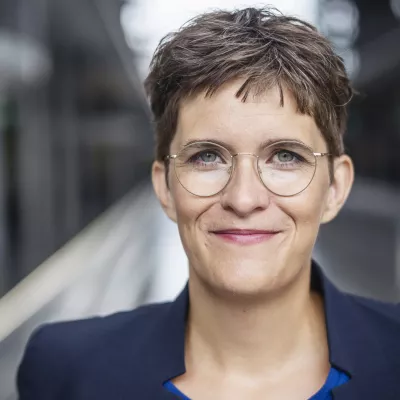
Anna Lührmann is the Deputy Director of the V-Dem Institute and Assistant Professor at the University of Gothenburg. Her research focuses on defensive democracy, autocratisation and democracy promotion. She was a member of the German Bundestag for Alliance 90/The Greens from 2002 to 2009.
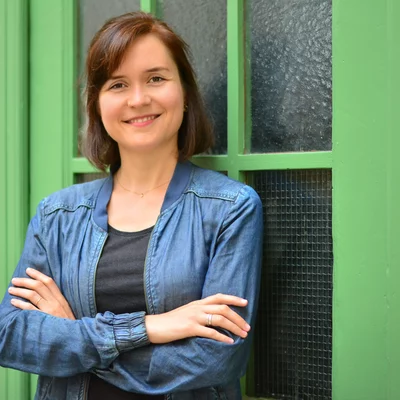
Lena Luig, born in 1989 in Hamburg, has been heading the International Agricultural Policy Department at the Heinrich Böll Foundation since 2022. She studied Latin American Studies in Passau, Braga (Portugal), and Vienna. Previously, she worked for five years as a consultant for global food security and agriculture at the development policy INKOTA network in Berlin. Her work focuses on the impact of the business models of dominant companies in the food system (especially in the pesticide and fertilizer sectors) on producers, consumers, and the environment, as well as on approaches and initiatives to promote a resilient, socially just, and ecologically sustainable food system with strong regional value chains.
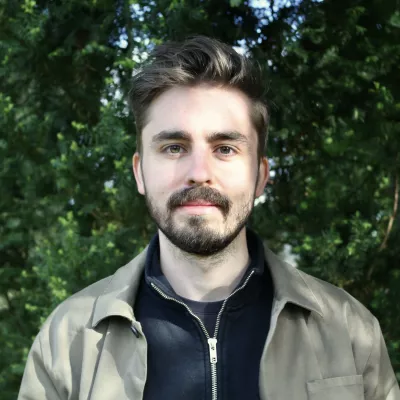
Georg McCutcheon is currently working as a Project Officer for EU affairs in the European Union and North America Division. Before joining the Heinrich-Böll-Foundation, he was a Desk Officer with the Syria Team at the European Commission’s Directorate-General for European Civil Protection and Humanitarian Aid Operations (DG ECHO) in Brussels. Prior work experience also includes assignments at the German Corporation for International Cooperation (GIZ). He studied BA International Relations and MA Global Political Economy at the University of Sussex. His main research topics were the socioeconomic transformation of states and societies in the context of an expanding capitalist world economy, and conflict analysis through the lens of political economy.
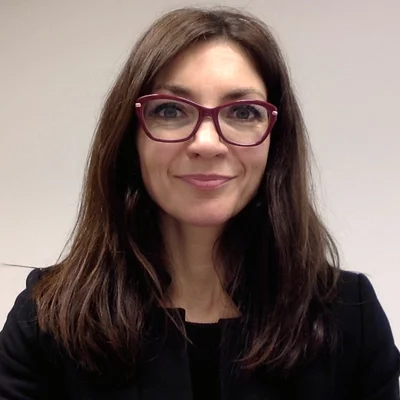
Renata Mieńkowska-Norkiene, Lecturer and researcher at the Faculty of Political Science and International Studies, University of Warsaw; from 2010 to 2019 lecturer at Michael Romer University in Vilnius; author of more than 70 scientific publications (mainly on European integration, gender equality, democracy, international politics), participant and leader of many research projects; scholarship holder at the Rhine University of Friedrich Wilhelm Bonn, University of Vilnius. She has held fellowships at the University of Vilnius, EURAC-European Academy in Bolzano, Free University of Brussels, Liechtenstein-Institut in Liechtenstein, the London School of Economics and Political Science and SciencePo in Paris; she has been a Blue Book Trainee at the Directorate-General for Personnel and Administration of the European Commission in Brussels; she is a member of Evaluation Team of Polish National Agency for Academic Exchange; she is a chairwoman of the International Institute of Civil Society, she is a member of Team Europe Direct.

Dr. Thu Nguyen is Deputy Director of the Jacques Delors Centre. She leads the think tank’s work on institutional questions of EU policy. In her own work, she mainly focusses on EU institutional reform, rule of law, democracy and economic governance. She is also the host of the Jacques Delors Centre Podcast “EU to go – der Podcast für Europapolitik”. Before joining the Centre, Thu was Assistant Professor of EU and comparative constitutional law at the Faculty of Law at Maastricht University. She holds a PhD in EU constitutional law from Maastricht University and was a re:constitution Fellow 2019-2020. She studied European Law in Maastricht, Rennes and the College of Europe in Bruges. Thu has given evidence on the subject of EU institutional reform and EU economic governance in various committee hearings in the German Bundestag and European Parliament. In January 2023, she was appointed by the German government to the Franco-German expert group on EU institutional reforms.
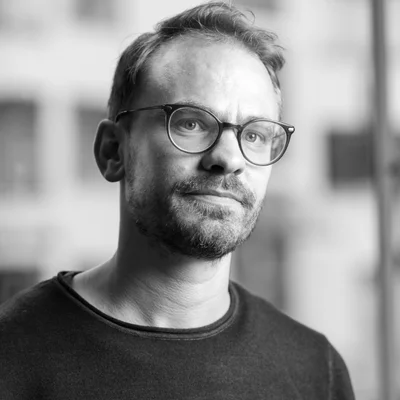
Merijn Oudenampsen is a political scientist and sociologist by training, specialized in the study of political ideas. He is presently a fellow at the International Institute for Social History in Amsterdam. He has worked as a Marie Curie fellow at the Université Libre de Bruxelles (ULB), where he wrote an English-language monograph on the Dutch neoliberal turn for Verso Books, due to appear next year. Before that, he has been researching the Dutch neoliberal turn, together with the historian Bram Mellink, and published Neoliberalisme: Een Nederlandse Geschiedenis (Boom 2022), which is now in its 6th printing. His PhD focused on the ideas behind the swing to the right in Dutch politics. It was published internationally as The Rise of the Dutch New Right (Routledge, 2021) and received the 2021 Choice Outstanding Academic Titles Award. He has published in leading journals such as Political Studies, Comparative European Politics, Economy and Society, Perspectives on European Politics, and the Journal of European Public Policy.
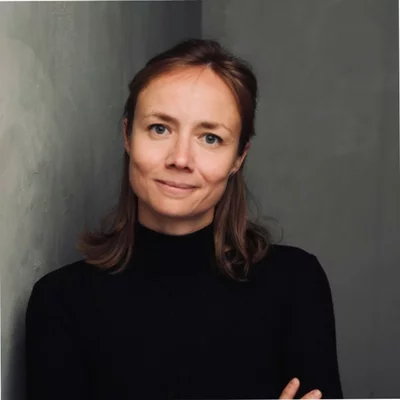
Urszula Papajak is a project manager at Bündnis Bürgerenergie e.V. Her responsibilities include photovoltaics, financing, and collaboration with citizen energy communities and municipalities. With over ten years of experience in participatory models for renewable energy, her focus is on digital solutions.
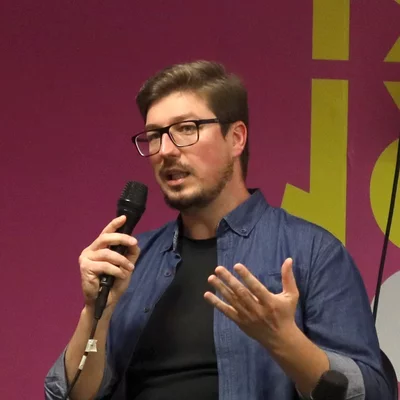
Alex Pazaitis is researcher at the Ragnar Nurkse Department of Innovation and Governance, Tallinn University of Technology and core member of P2P Lab. Since 2024 he is a visiting researcher at the Post-Growth Innovation Lab, University of Vigo, leading a research project on climate resilient political economy, and a visiting lecturer at the Autonomous University of Barcelona. Alex’s research is focusing on value perceptions from a commons perspective and implications for technology and organisational practices. He has extensive experience from research and innovation projects and project management, and has worked as a consultant for private and public organisations. His research interests include digital commons; theory of value; innovation policy; cooperativism; and distributed ledger technologies.
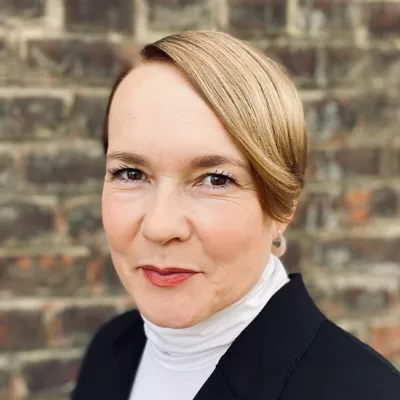
Eva van de Rakt, EU citizen, raised in a Dutch-German family, lives in Berlin and Prague. She has worked for the Heinrich-Böll-Stiftung since 2001. At present, she is Head of the European Union and North America Division at the Heinrich Böll Foundation in Berlin.
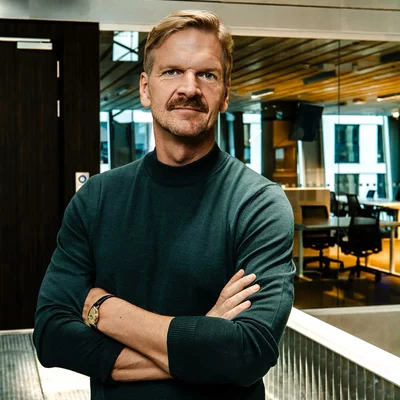
Gordon Repinski has been the Executive Editor of POLITICO Germany since January 2024, and the author of the daily politics newsletter and the accompanying podcast "Berlin Playbook." Previously, he was a graduate of the German School of Journalism, a correspondent for Spiegel in Washington D.C. and Berlin, head of the capital city bureau for the Redaktionsnetzwerk Deutschland, and deputy editor-in-chief at The Pioneer.
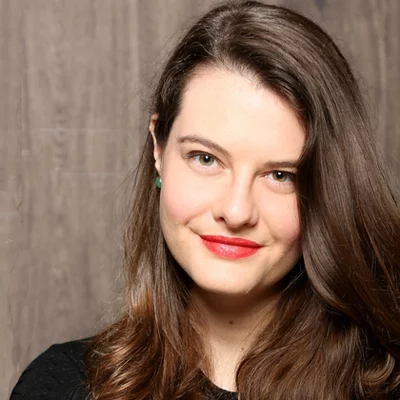
Claudia Rothe is a Senior Programme Officer European Union at Heinrich-Böll-Foundation, Berlin. Claudia Rothe completed a Bachelor's degree in European Studies at the University of Osnabrück and a Master's degree in North American Studies at the John F. Kennedy Institute of the FU Berlin and the Indiana University in Bloomington, IN.
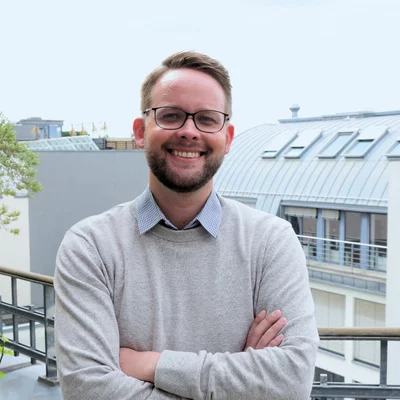
Julian Schwartzkopff leads the "Gas Ausstieg" (English: Gas Exit) team in the energy and climate protection division of the Deutsche Umwelthilfe (DUH). He has been working for DUH since 2019, coordinating cross-sectoral work on EU issues. Prior to that, he worked at E3G – Third Generation Environmentalism on climate policy at the German and European levels. He studied political science and international relations in Berlin, Cambridge, and Florence.
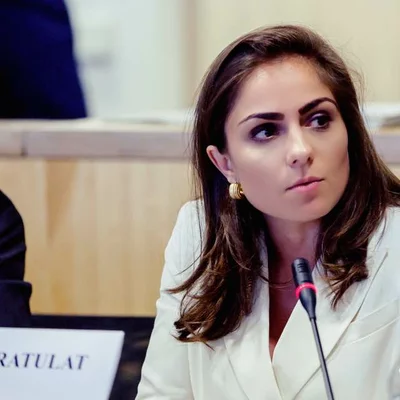
Corina Stratulat is Associate Director and Head of the European Politics and Institutions Programme. Her work at the EPC focuses on EU institutional developments and enlargement towards the Balkans. She holds an MPhil in Contemporary European Studies from the University of Cambridge, UK and a PhD in Political and Social Sciences from the European University Institute, Italy. Her main research interests include parties and party systems, elections, democracy, populism, EU institutions, the Balkans’ EU integration, and enlargement policy.
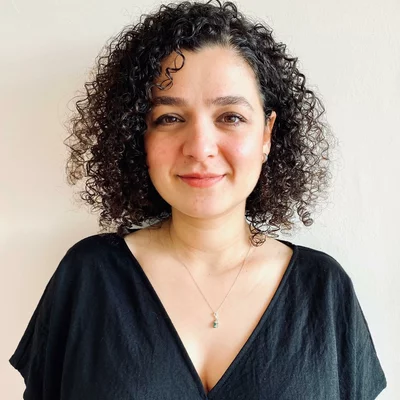
Açelya Uçan earned a bachelor's degree in Sociology from Ege University in 2008. In 2011, she completed her master's program with a thesis focused on women's shelters, the women who use them, and the stigmatization they face. Following her master's program, she developed a keen interest in women's rights, feminist social work models, and Turkey's social policies. With this interest, she has been volunteering for Mor Çatı since 2011 and is currently working as the Program Coordinator for Mor Çatı. She has also worked for various NGOs focused on child rights and refugee rights.
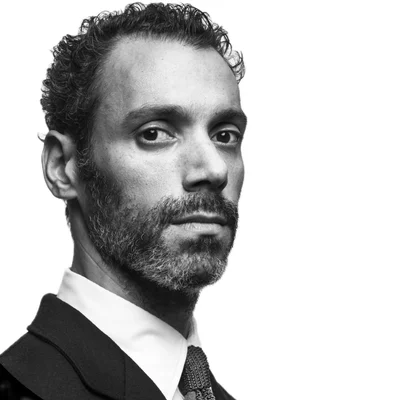
Shahin Vallée is a senior research fellow in DGAP´s Center for Geopolitics, Geoeconomics, and Technology. Prior to that, he was a senior fellow in DGAP’s Alfred von Oppenheim Center for the Future of Europe. Until June 2018, Vallée was a senior economist for Soros Fund Management, where he worked on a wide range of political and economic issues. He also served as a personal advisor to George Soros. Prior to that, he was the economic advisor to Emmanuel Macron at the French Ministry for the Economy and Finance, where he focused on European economic affairs. Between 2012 and 2014, Vallée was the economic advisor to President of the European Council Herman Van Rompuy. This experience has put him at the heart of European economic policy discussions since 2012, in particular on issues related to the euro area and international policy coordination (IMF, G20). Having started his career working for social investment vehicles and entrepreneurship in Africa, he has also worked as a visiting fellow at Bruegel, a Brussels-based economic think tank, and as an economist for a global investment bank in London. Vallée is currently completing a PhD in political economy at the London School of Economics and Political Science. He holds a master’s degree from Columbia University in New York, a degree in public affairs from Sciences Po in Paris, and an undergraduate degree in econometrics from the Sorbonne.
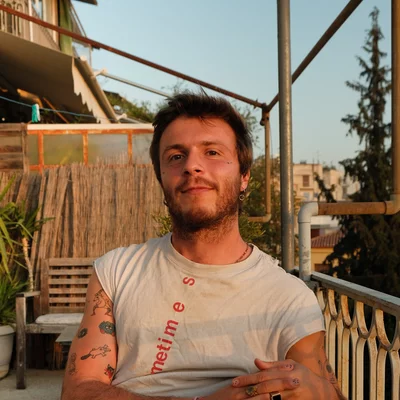
Chris Vrettos is working for REScoop.eu, the European Federation of Energy Cooperatives, and Electra Energy (Greece). Both organisations promote the active engagement of citizens in renewable energy production in Europe. He has worked on multiple research programs as an assistant, on topics such as the EU Green Deal and degrowth. He’s interested in international climate politics and journalism and has attended multiple UNFCCC COPs. He ran as an MEP candidate with a Greek Green party in the EU elections of 2024.
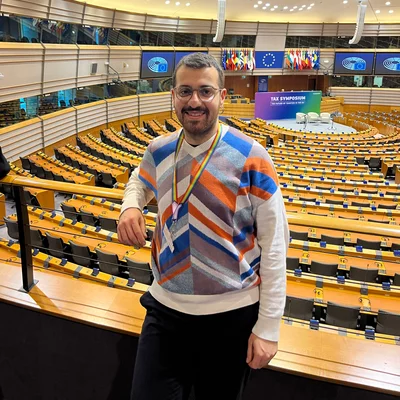
Umut Rojda Yıldırım is a human rights lawyer and civil society expert on LGBTI+ and human rights issues. He actively engages with international human rights mechanisms, conducting advocacy, reporting, policy briefing, and strategic litigation. He holds an LL.B from Istanbul University and is admitted to the Istanbul Bar Association as an attorney. He is actively involved with the Social Policy, Gender Identity, and Sexual Orientation Studies Association (SPoD), an Istanbul-based NGO advocating for LGBTI+ rights in Turkey, where he has served both as a volunteer and professional and currently holds the position of Board Member. Additionally, he works as a Capacity Building Expert at the Rainbow Against Discrimination Association, which focuses on enhancing the organizational resilience and sustainability of LGBTI+ organizations.
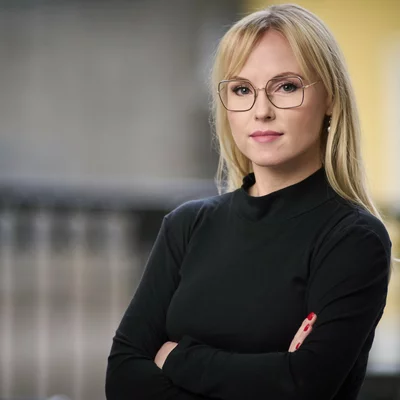
Dr. Edit Zgut-Przybylska is an assistant professor at the Institute of Philosophy at the Polish Academy of Sciences and a research affiliate at CEU Democracy Institute. Her research interest covers informality, populism, and Euroscepticism in the context of democratic backsliding. She also conducts policy research on Russian and Chinese influence in Central-Eastern Europe. Synthetic versions of her work are available in Foreign Policy, POLITICO Europe, Visegrad Insight and the German Marshall Fund of the United States. Edit is a guest lecturer at the Foreign Service Institute of the US State Department, she previously worked at the Political Capital Research Institute, and as a journalist at various media outlets in Hungary.
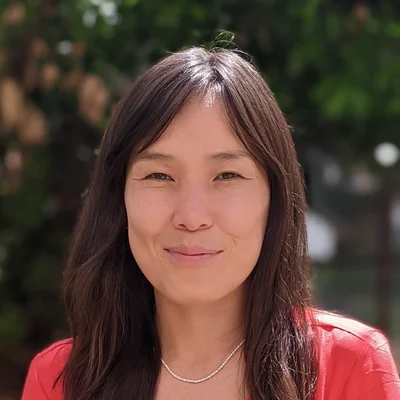
Burtejin Zorigt, a political scientist and gender equality expert, currently holds the position of Programme Manager for Democracy and Human Rights at the Heinrich Böll Stiftung Prague. Her previous engagements include collaborations with esteemed institutions and civil society organizations such as Eötvös Loránd University, Equalizer Foundation, Hungarian Women's Lobby, Amnesty International Hungary, and Hungarian Academy of Sciences.
Dr. Zorigt has lectured and conducted research on gender and development, gender and politics, research methodology, and comparative politics at Central European University in Vienna, Uppsala University in Sweden, and Yangon University in Myanmar. She earned her PhD from Central European University, focusing on the impact of political parties' candidate selection procedures on women's representation. She is a frequent presenter at conferences and contributes articles on a range of societal issues, spanning from gender equality to political affairs, to various news outlets.
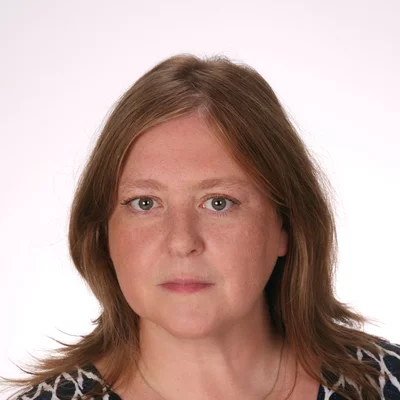
Justyna Zwolińska is a lawyer, lecturer and author specializing in issues related to quality and environmental protection policy in agriculture, food policy, Common Agricultural Policy and farm animal welfare. Lecturer at postgraduate studies "Food Law" and "Animal Rights" at SWPS University. Lecturer at the Faculty of Human Nutrition of the Warsaw University of Life Sciences. A long-time collaborator of non-governmental organizations dealing with agriculture, environmental and animal protection. Member of the "Lawyers for Animals" Association and the Organic Farming Forum, the Strefa Zieleni Foundation Board and the IFOAM "Farm Animal Welfare" group. Expert in the UN Climate Leadership program at UNEP/GRID. Since 2023, member of the Climate/Environment team at the Office of the Commissioner for Human Rights. Since 2018 advocacy coordinator for the Living Earth Coalition. In 2024, she was recognized by Forbes as one of Polish leaders in climate and environmental protection.